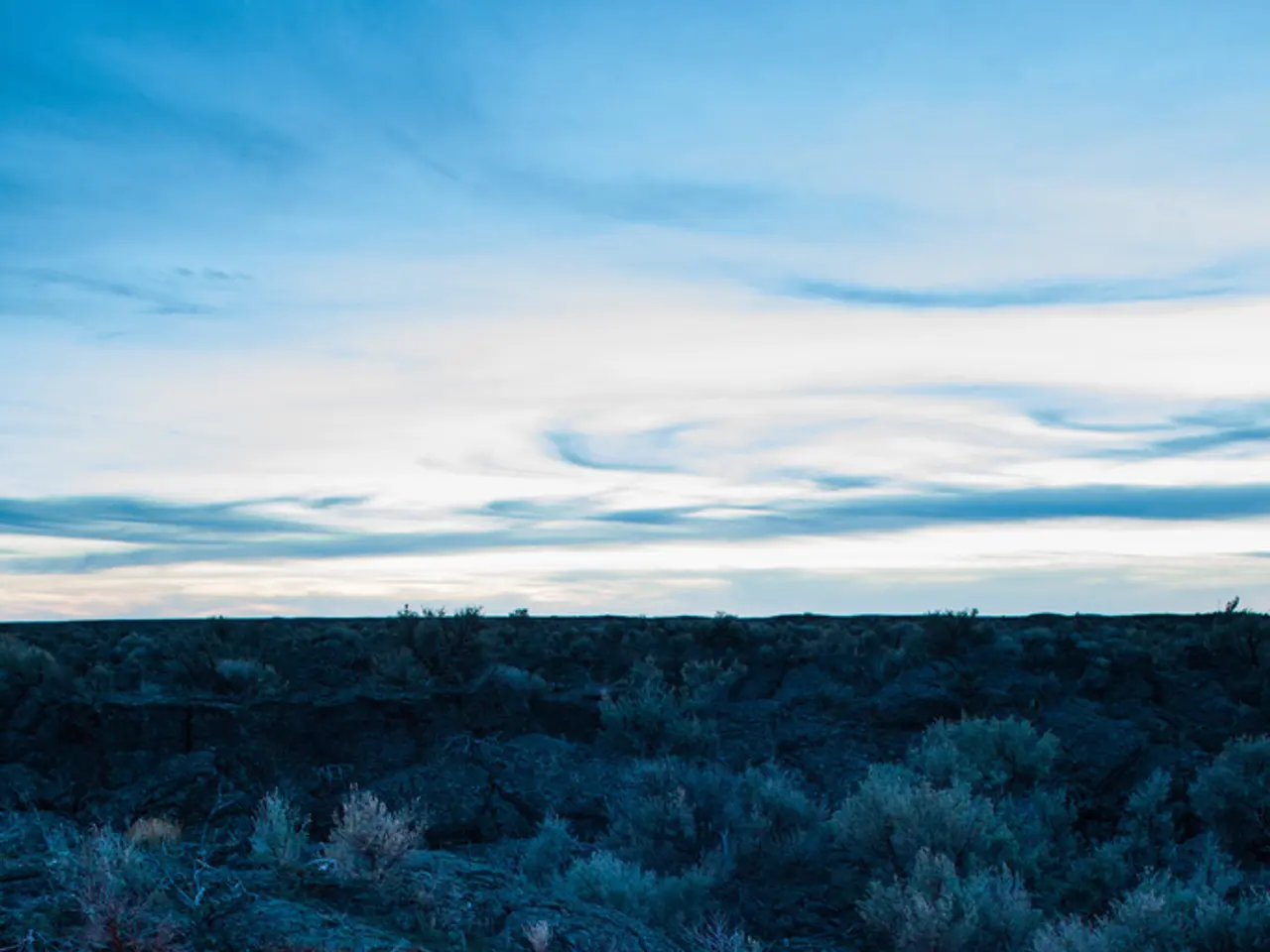Proper behavior near fires: Identifying secure spots and steps to prevent accidents
Wildfire Safety Tips for Spain: Personal Safety, Communication, and Shelter
Wildfires are currently ravaging territories across Spain, including Cadiz, Leon, Zamora, Ourense, and Madrid. If you find yourself near a wildfire, it's essential to know the recommended actions for personal safety, communication, and shelter.
Personal Safety
- Evacuate immediately if authorities issue an evacuation order. Wildfires can spread rapidly and unpredictably due to high temperatures, dry vegetation, and strong winds that may create dangerous fire whirls.
- Stay aware of wildfire behavior. Fire whirls are extreme fireball events caused by heat and wind that can disrupt firefighting efforts and make fires highly dangerous.
- Avoid inhaling smoke by covering your nose and mouth with a damp cloth or mask (such as an N95 respirator, if available) and stay low to the ground if in smoky areas.
- Wear protective clothing if possible (long sleeves, pants, gloves, sturdy shoes) to minimize burns or injuries.
Communication with Emergency Services
- Follow official updates and evacuation instructions from local authorities via radio, TV, or emergency broadcast systems.
- Use phone lines for emergencies only and inform family or friends of your location and plans.
- Be aware that evacuation plans may involve road closures and restricted airspace; adhere to them strictly.
- If you see people trapped or in danger, contact emergency services immediately with precise location information.
Seeking Shelter
- If evacuation isn't possible, seek shelter in a building with minimal flammable materials, ideally constructed from fire-resistant materials.
- Avoid staying in vehicles or tents, which are highly vulnerable to fire.
- Identify a safe room if at home—a room with few windows and doors sheltered from prevailing winds.
- Stay inside, close all doors and windows, and turn off ventilation systems to reduce smoke infiltration during the fire.
Preparing beforehand with knowledge of evacuation routes, emergency contacts, and safety plans is also crucial to increase chances of safety. The Directorate General of Civil Protection and Emergencies recommends calling the emergency telephone number 112 if you find yourself near a fire.
If the fire is small, you can try to put it out using water, branches, or by throwing dirt on the flames, but prioritize your own safety. Do not throw cigarettes, papers, plastics, glass, and other combustible waste as they can start a fire and pollute. If your clothes catch fire, roll on the ground or cover yourself with a blanket to extinguish the fire.
If a wildfire catches you off guard in the field, flee downhill if it's a mountain or slope, and do not seek refuge in deep zones. Avoid crossing flames as you may get trapped. If you go to a forest area, park your vehicle in a designated parking area to prevent starting a fire with the exhaust pipe.
If you need to burn stubble, contact your regional environmental authority to request the necessary permit. If you're inside your house, call 112, stay calm, close doors, windows, and blinds, disconnect electricity, gas, and diesel supplies, and follow official communications.
If the fire is larger, move away in the direction opposite the smoke, especially if you are in the countryside or on a hill. Cooperate with authorities and fire prevention, surveillance, and extinction professionals. Do not light fires in the field, even in designated recreational areas during dangerous times.





